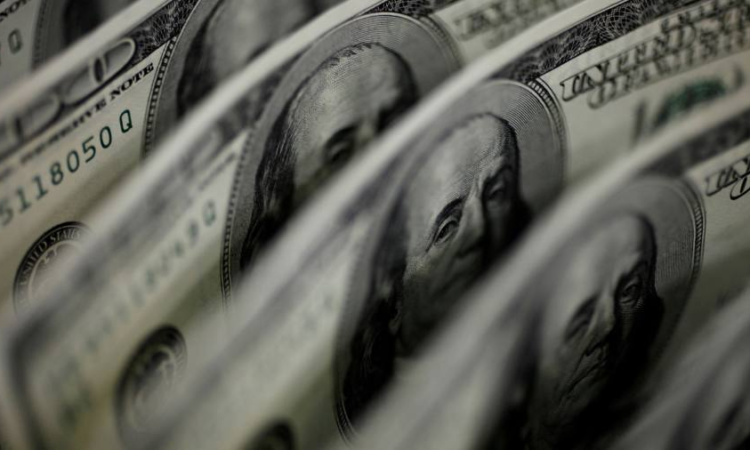
Huge moves in currency markets look set to provide one group of hedge fund managers with a rich seam of trading opportunities again.
So-called merger arbitrage funds, which bet on the likelihood of corporate mergers and acquisitions closing, have had fewer deals to trade this year as global economic uncertainty and higher interest rates have weighed on dealmaking.
But the dollar’s relentless march higher against sterling, the yen and the euro could change all this. With dollar-based companies or funds now able to pick up foreign companies for a lot less than before, “everything in the UK is on sale”, as one US private equity executive put it this week. Merger arbs smell an opportunity.
“UK companies are a lot cheaper than a few weeks ago,” said Pierre di Maria, head of event-driven at Cheyne Capital in London. “We expect a pick-up in UK M&A to be triggered by weakness in the pound.”
Priced in sterling but with a high proportion of dollar earnings, FTSE companies are a natural target. Some managers, such as Kite Lake’s Jamie Sherman, believe the market is not pricing such stocks correctly.
Felix Lo, a former Millennium trader who now runs a merger arb fund at Trium Capital, has built a screening tool to monitor the effect that these currency moves are having on cross-border deals. He expects US firms to be active.
“Both the price paid and the target’s value can materially change in a very short period of time”, said Lo. “CEOs across the globe are generally cautious in this environment, but US CEOs are the most bullish and eager to do deals,” he added.
Any pick up in activity will be a welcome fillip to merger arbs, who have found their opportunities set constrained by a darkening economic outlook. After last year’s record M&A, global deal volumes were down 34 per cent year on year in the first nine months of this year, while US volumes were down 40 per cent, according to Refinitiv.
Deal activity has also been overshadowed by concerns that the Department of Justice and Federal Trade Commission will take a tougher approach to takeovers. The head of the DoJ’s antitrust unit, Jonathan Kanter, has said it will take a tougher stance on private equity deals, while FTC chair Lina Khan has said regulators should be “sceptical” when private equity firms try to buy businesses divested by companies that are merging.
While managers such as Kite Lake’s Sherman argue such regulatory risk is “more bark than bite”, it has nevertheless increased the uncertainty around deals.
Reflecting that uncertainty, average annualised deal spreads — the gap between the deal price and the share price — have risen from 8.1 per cent at the start of the year to 17.6 per cent, according to data from UBS Special Situations, which takes into account deals with a spread of between zero and 50 per cent.
The change in conditions is showing up in some funds’ performance numbers. While some funds such as Trium and Kite Lake’s KL Special Opportunities are up double-digits, merger arbs as a whole are up an underwhelming 0.7 per cent on average in the first nine months of this year, according to data group HFR.
That is a world away from the so-called “arb-ageddon” of March 2020, when deal spreads exploded during the onset of the coronavirus pandemic and merger arbitrage funds lost nearly 10 per cent on average in a month. But it is still a marked slowdown from last year’s buoyant 10.6 per cent gain.
But while a pick-up in cross border M&A will be welcomed, there will of course be hurdles. The UK’s financial chaos is likely to make US boards wary of committing to deals just yet.
Moreover, UK companies often seek to ensure they have enough dollar revenues to match the costs of their dollar debt. That can leave them in a “delicate” situation, according to Cheyne’s di Maria, as their debt rises in dollar terms while their revenues are hit by a slowing global economy. However, he believes this is a problem that can be “easily fixed” if the acquirer is a private equity that can then replace dollar debt with local currency paper.
While they wait for an upswing in M&A in the UK and elsewhere, there are at least some deals they can trade. Chief among these is Elon Musk’s extraordinary takeover battle for Twitter, which has been a profitable trade for many managers.
The vagaries of the deal, which is currently back on after Musk this month U-turned and offered to go ahead at the initially agreed price of $44bn, have provided plenty of media entertainment but have also given arbs the chance to trade in and out.
A number who have done their homework on Delaware law feel quietly confident that, whatever the two parties tweet at each other in the meantime, Musk will eventually be forced to follow through on the deal. That, for now, should be enough to keep the arbs busy.
laurence.fletcher@ft.com



